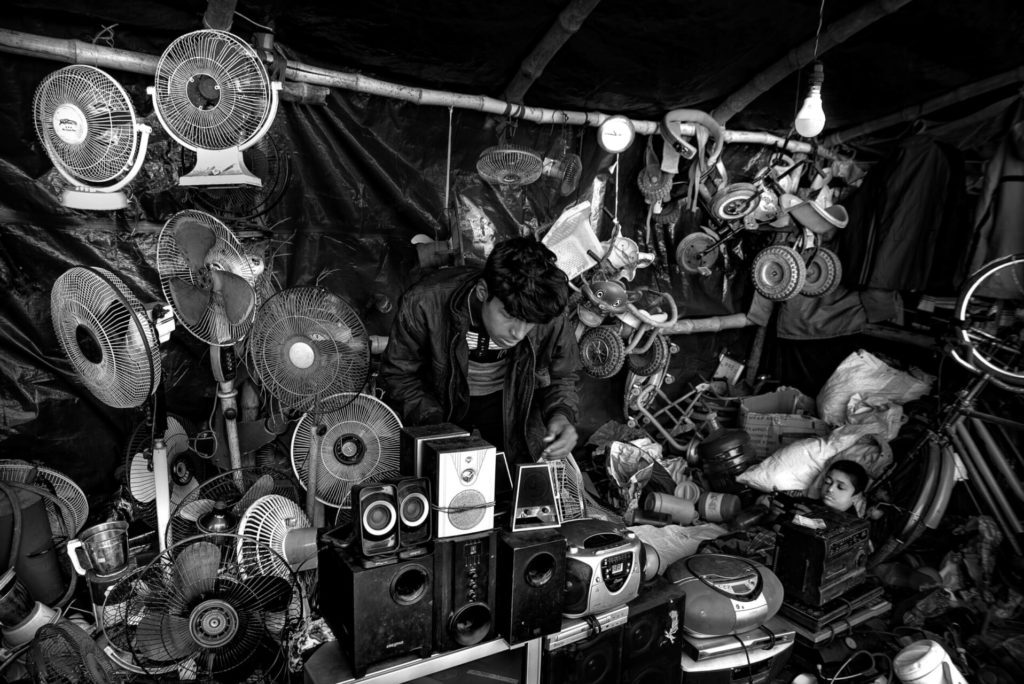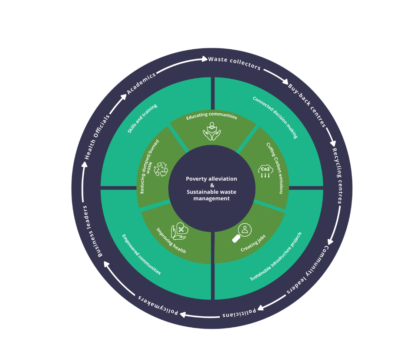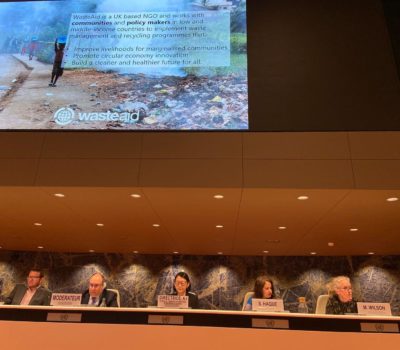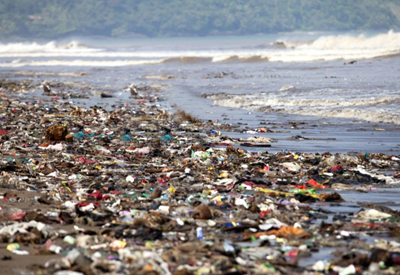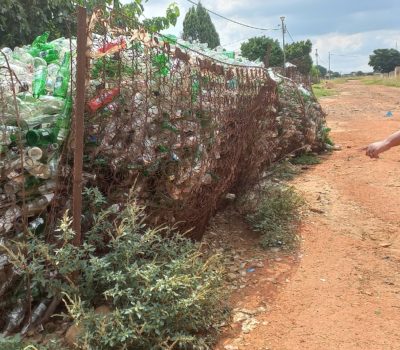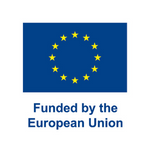World Environment Day 2021: Spotlight on e-waste
News
Author: Admin
Published: 5 June 2021
Ambitions to achieve zero greenhouse gas emissions by 2050 will rely on low carbon technology, which in turn depends upon the availability of rare elements such as cobalt and lithium. But with electrical and electronic goods being casually disposed of in landfills and dumpsites around the world, dwindling supplies of these vital materials may hinder our efforts to bring climate emissions under control.
What is e-waste?
E-waste is comprised of used electrical and electronic equipment that has circuitry or electrical components and a power or battery supply, and falls into six categories:
- Cooling and freezing equipment including refrigerators, freezers, air conditioners and heat pumps.
- Screens and monitors including televisions, laptops, notebooks and tablets.
- Lamps including fluorescent lamps and LED lamps.
- Large equipment such as washing machines, clothes dryers, dishwashers, electric stoves, large printers and copiers, and solar panels.
- Small items such as vacuum cleaners, microwaves, toasters, electric kettles, electric shavers, scales, calculators, radio sets, cameras and electrical and electronic tools.
- Small IT and telecommunications equipment such as mobile phones, GPS systems, calculators, routers, personal computers, printers and telephones.
Each of these categories has a different lifetime (how long the product is expected to last before breaking or becoming technologically obsolete) and has different waste quantities, economic values, and environmental and health impacts if disposed of improperly. Likewise, people have different perceptions and attitudes towards e-waste and variable access to recycling services, meaning far too many of these items – and the vital rare elements they contain – are being thrown away.
A man sorting parts from old electronic gadgets. This photo was taken in a rural part of West Bengal, India, where a community of 30 people recovers tin, silicon, iron, aluminium, lead, copper, gold and a variety of plastics from e-waste. Photo: WasteAid / Avijit Ghosh.
Environmental and human risks of poor e-waste disposal
If we don’t get e-waste recycling sorted, disc drives, circuit boards, solar panels and electric vehicle batteries could all be affected by the lack of availability of rare metals.
Calls have been made to make e-waste recycling compulsory. The International Energy Agency recently calculated that demand for critical and rare minerals will grow by six times by 2040, with demand for lithium growing to 40 times today’s demand due to its use in batteries. If low-carbon technology becomes unaffordable because of a lack of vital materials, it is unlikely that climate targets will be met.
The continual mining of various metals and other resources required to make electrical and electronic goods not only depletes resources, but mining itself causes lasting environmental issues, habitat displacement for wildlife, and often involves poor and dangerous working conditions.
Furthermore, when disposed of improperly these materials also cause specific threats to the natural world and human health. A study in 2016 found that the backyard recycling of lead-acid car batteries is the number one source of pollution in the world’s poorer nations, leading to millions of years of healthy life being lost and profoundly affecting childhood development.
The impacts of poor e-waste management include:
Air pollution: Separating the valuable components from e-waste is not a simple task, since they are rarely designed for disassembly. For example, copper wires in computer equipment are often recovered by open burning that removes the plastic casing but leads to significant and harmful release of hydrocarbons. Meanwhile, the chemical stripping of gold-plated computer chips releases emissions of brominated dioxins and heavy metals.
Water pollution: Older televisions, video cameras and computer monitors containing cathode ray tubes which have a recycling value. These items are broken apart to recover the cathode ray tube, and the rest of the shell or casing is dumped. The shells contain lead and barium which can leach through the soil into groundwater, endangering wildlife and the communities who depend on the water source for drinking and bathing.
Soil pollution: Dumped e-waste leaches toxic particles of heavy metals into the soil, where they are absorbed by crops and enter the human food chain. Once in the human body, these heavy metals accumulate and have been implicated in a range of harmful diseases including Alzheimer’s, diabetes and several forms of cancer.
Information security: A lot of our personal data is saved on electronic equipment, meaning if the item is improperly disposed of it can pose a threat to personal and business security. Hard drives need to be erased properly to prevent sensitive information being exposed, such as credit card numbers, financial data and bank account records.
Human exploitation: While there are a many legitimate e-waste recycling organisations, the industry is also blighted by modern day slavery. The work to recover precious metals from used electronic and electrical equipment can be dangerous and workers are often underpaid and denied basic rights.
The secondhand electronics market is a vital way to keep resources in the loop. Photo: WasteAid / Surav Das in West Bengal.
Recycle your e-waste with WasteAid
For World Environment Day 2021, WasteAid is teaming up with musicMagpie in the UK, who are donating £1 for each piece of consumer tech customers trade in with them. In addition, sellers will have the option to donate the value offered by the recommerce platform to the charity.
The money raised during this campaign will contribute to WasteAid’s programmes and support the development of educational materials on how to tackle the issue of e-waste, and importantly how to recycle and repair unwanted technology.
If you are in the UK and like many people, have a drawer full of old phones and other small electrical items, now is the time for a spring clean. By recycling your e-waste with musicMagpie through the month of June 2021, you can support communities and policy makers in lower-income countries to help reduce pollution, protect human health and save vital resources for climate-friendly technology.
Written by Zoë Lenkiewicz


